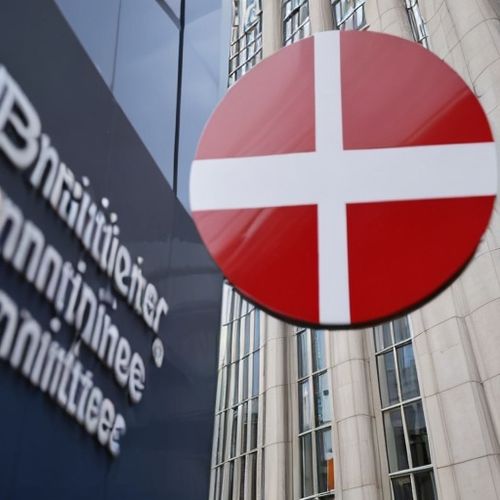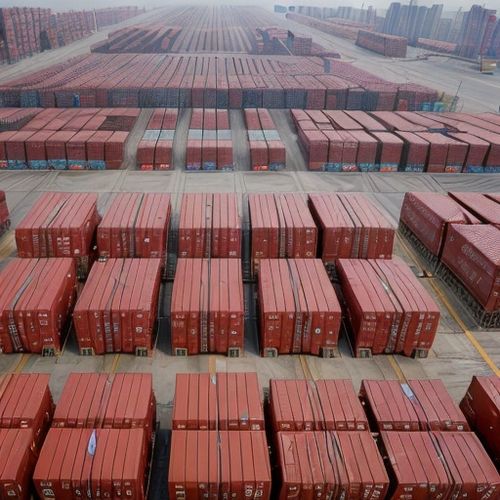Japan, the world's third-largest economy, has been grappling with a persistent issue of declining household spending, a trend that has been exacerbated by the ongoing inflationary pressures. This economic phenomenon has far-reaching implications for the country's growth prospects and the well-being of its citizens. The struggle to maintain a decent standard of living amidst rising prices is becoming increasingly challenging for many Japanese households.
Economic Context and Household Spending
Japan's household spending has been on a downward trajectory for several years, reflecting a complex interplay of factors including stagnant wages, an aging population, and a general sense of economic uncertainty. The most recent data indicates that despite some efforts to stimulate the economy, consumer spending remains lackluster. This is particularly concerning as consumer spending accounts for a significant portion of Japan's GDP, and a sustained decline could signal a broader economic slowdown.
The aging demographic in Japan is a critical factor contributing to the decline in household spending. As the population ages, the number of active workers decreases, leading to a reduced overall income and spending power. Additionally, older individuals tend to have lower consumption rates compared to younger, working-age populations. This demographic shift is further complicated by the fact that Japan has one of the highest life expectancies in the world, which means that the burden of an aging population will continue to weigh on the economy for the foreseeable future.
Inflation and Wage Growth
While Japan has historically been known for its low inflation rates, recent global economic developments have led to a surge in prices. The cost of living has been increasing, putting additional pressure on households that are already struggling with stagnant wages. The inability of wages to keep pace with inflation has resulted in a real decrease in purchasing power, further dampening consumer spending.
Wage growth in Japan has been sluggish for decades, with companies often hesitant to raise salaries due to concerns over competitiveness and profitability. This has created a vicious cycle where low wage growth leads to low consumer spending, which in turn leads to low demand and further wage stagnation. The government's efforts to encourage wage increases through various policies have had limited success, as the underlying structural issues within the economy remain unaddressed.
Implications for the Economy
The continuous decline in household spending and the struggle to maintain wage growth in the face of inflation have significant implications for Japan's economic health. A lack of consumer spending can lead to reduced business investment, as companies may see less incentive to expand or innovate when demand is low. This, in turn, can lead to a slowdown in economic growth and potentially even a recession.
The situation also has broader social implications. As households struggle to make ends meet, there may be an increase in poverty rates and a decline in the overall quality of life. This can lead to increased social unrest and a greater demand for government support, placing additional strain on public finances.
Policy Responses and Challenges
The Japanese government has implemented various measures to address the issue of declining household spending and wage stagnation. These include monetary policy adjustments, such as maintaining low-interest rates to encourage borrowing and spending, as well as fiscal stimulus packages aimed at boosting demand. However, these measures have had limited success in reversing the trend, as they often only provide short-term relief without addressing the underlying structural issues.
Addressing the aging population and promoting economic growth through measures such as immigration and investment in education and technology are also part of the government's strategy. However, these are long-term solutions that require significant political will and societal acceptance, which can be challenging to achieve in a country with a strong cultural resistance to change.
The ongoing decline in Japan's household spending and the struggle with wage growth in the face of inflation present a complex and multifaceted challenge. While the government has taken steps to address these issues, the effectiveness of these measures has been limited, and a more comprehensive approach is needed to ensure the long-term health of the economy and the well-being of its citizens. The situation serves as a cautionary tale for other economies facing similar challenges, highlighting the importance of proactive and innovative policy responses to maintain economic stability and growth.

By Sophia Lewis/Apr 6, 2025

By Thomas Roberts/Apr 5, 2025

By Emma Thompson/Apr 5, 2025

By Sarah Davis/Apr 5, 2025

By John Smith/Apr 5, 2025

By Laura Wilson/Apr 5, 2025

By Christopher Harris/Apr 5, 2025

By Emma Thompson/Apr 5, 2025

By David Anderson/Apr 5, 2025

By James Moore/Apr 5, 2025

By James Moore/Apr 5, 2025

By Natalie Campbell/Apr 5, 2025

By David Anderson/Apr 5, 2025

By Grace Cox/Apr 5, 2025

By Thomas Roberts/Apr 5, 2025

By Christopher Harris/Apr 5, 2025

By Michael Brown/Apr 5, 2025